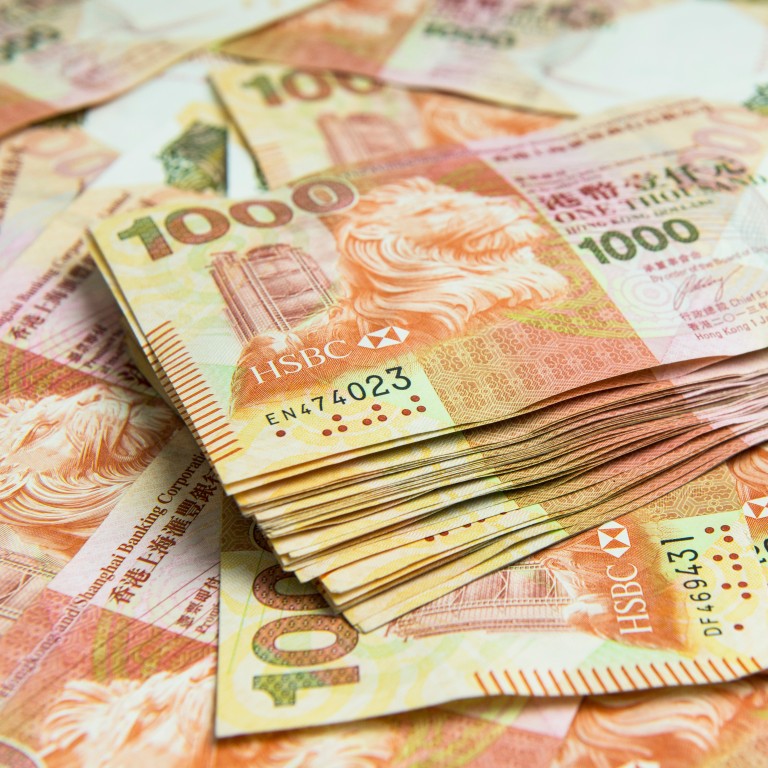
Hong Kong dollar deposits plummet 12 per cent in February new year holiday takes heat out of IPO frenzy
- There were only seven new stock market listings in February, compared with 15 in January, according to data from Refinitiv
- The decline in deposits was the biggest since November when the refund of Ant Group’s suspended IPOs
Hong Kong dollar deposits in the local banking system plummeted 11.8 per cent in February, or HK$1.02 trillion (US$131.48 billion), to HK$7.65 trillion.
There were fewer initial public offerings as the holiday marking the start of the Year of the Ox gave investors a break from chasing an IPO bonanza. There were only seven new listings in February raising US$2.07 billion, compared with 15 new listings in January raising US$7.64 billion, according to data from Refinitiv.
The decline in deposits in February was the biggest fall since November when the refund of Ant Group’s suspended IPOs led to deposits decreasing by 12.6 per cent.
The data from the Hong Kong Monetary Authority showed the city’s financial system and banking sector are holding up well. Money is flowing in to the local stock market even as the city reports sky-high unemployment amid the worst economic recession on record.
In the last two years, Hong Kong has been rattled to its core by social unrest and the Covid-19 pandemic.
“The many initial public offerings and secondary listings have been attracting hot money to flow in to the Hong Kong capital markets since last year. The local banking sector still has a lot of liquidity and there is no sign of any capital outflow while the exchange rate of the Hong Kong dollar remains stable,” said Bruce Yam, a currency strategist at Everbright Sun Hung Kai.
“The outlook is positive, as the worst is over. Economic activity across many sectors has started to resume as the government has started to relax social distancing, and the vaccine programmes have started to take effect.”
The sharp fall of Hong Kong dollar deposits in February is in contrast to a surge of 18.6 per cent in January which was largely the result of the hugely popular IPO of Kuaishou Technology, the video-sharing platform. The listing drew subscriptions of 1,204 times the available retail tranche of shares on offer, totalling HK$1.28 trillion (US$164.8 billion).
Together with a 1.3 per cent decrease in foreign deposits, the total deposits in Hong Kong at the end of February stood at HK$14.82 trillion, which is 7 per cent lower than a month earlier but 7.8 per cent higher than a year ago.
Excluding IPO effects, total deposits in February would have decreased by 2 per cent while while Hong Kong dollar deposits would have dropped by 2.7 per cent.

